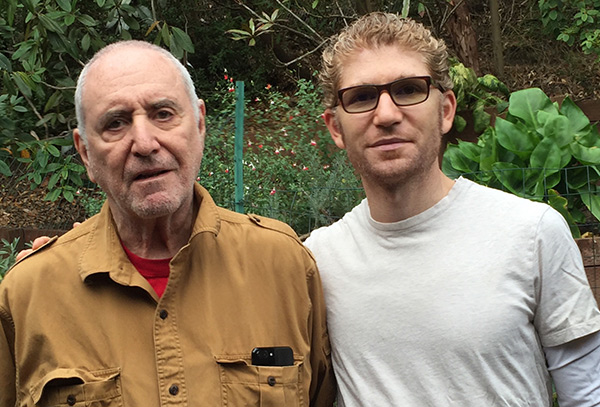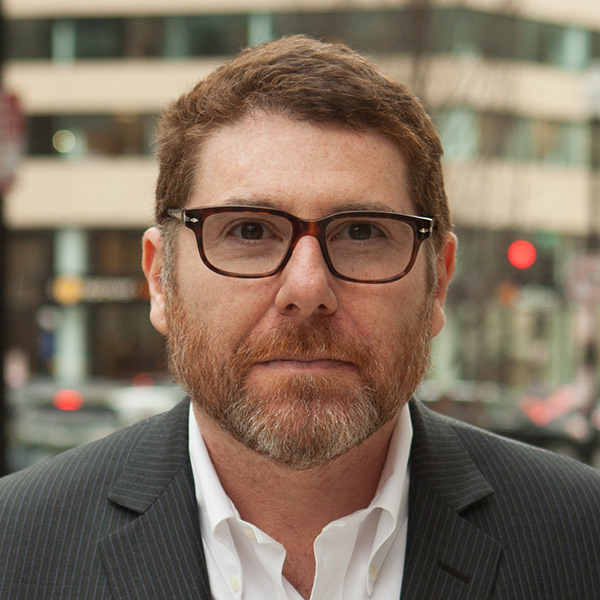The Smart Money is On Civic Education
A leading philanthropic family is betting on TC’s efforts

Now a leading education philanthropist who chairs the Smart Family Fund, Smart has continued making just such trouble. His efforts to help reinvent American education include critical support for charter schools such as the highly-praised Amistad Academy in New Haven, Connecticut, whose innovative reforms have been replicated in a chain of eastern charters.
The impact of inequitable school funding on civic preparation “the single most important subject or topic that is hurting life in this country.”
— Raymond Smart
More recently, Smart and his sons, Archibald and Roland, have been leading supporters of Teachers College’s Center for Educational Equity (CEE), led by the pioneering school finance litigator Michael A. Rebell, Professor of Law & Educational Practice. CEE’s Comprehensive Educational Opportunity Project explores use of the legal system to close the massive funding gaps between school districts in rich and poor communities and ensure that funds produce better education for all.
“I think it’s the single most important subject or topic that is hurting life in this country,” says Raymond Smart.

The Smarts are particularly enthused about Rebell’s plans to persuade the U.S. Supreme Court to establish a Constitutional right to education premised on the preparation of young people to function as capable citizens. They believe that the 2016 election and ensuing divisive politics demonstrate the importance of civics education aimed at giving students the tools to grapple with issues that face their communities, the nation and the world. They’re hopeful that better informed voters will tackle problems such as gerrymandering (the redrawing of voter districts) to protect incumbent office holders.
Archibald Smart adds that civics education is an important “piece of the puzzle” that’s been lost in the rush to bolster math and science instruction. “If students have no sense of American history and no regular civics curriculum, how can we expect – come Election Day or when it’s time to get involved in local, state or national issues that have a huge impact – that they’ll be well-informed and prepared?”
“If students have no sense of American history and no regular civics curriculum, how can we expect – come Election Day or when it’s time to get involved in local, state or national issues that have a huge impact – that they’ll be well-informed and prepared?”
— Archibald Smart
Informing the public is a longstanding tradition in the Smart family. Raymond Smart’s grandfather, David A. Smart, was one of three principal founders of Esquire, working the business side of the magazine that has published Ernest Hemingway, F. Scott Fitzgerald, Tom Wolfe and Gay Talese. After the sale of the publication in the early 1970s and the rest of the firm, which marketed textbooks and other educational material, in 1983, the family turned toward philanthropy.
Raymond Smart worked in one of his family’s business, making short educational films, before taking leadership in his family’s philanthropic efforts. For a time, he headed the large Smart Family Foundation. The latter has now split into four separate units, with Raymond, Archibald and Roland controlling the Smart Family Fund, which continues to focus on school reform issues.
Not surprisingly, given what he calls his “existential distrust” of the school system, Raymond Smart was intrigued by the promises of the charter-school movement to reward experimental approaches to teaching. With the Amistad project and many subsequent projects, he’s developed a reputation for his hands-on approach.
“He’s been so supportive,” Rebell says. “He cares about these issues.”
Roland Smart says in some cases the newly refocused philanthropy (for which he serves as a board member) can operate like “an angel” investor, using seed money to identify experimental reform efforts that will work and then merit investments from larger foundations. The innovation that will revolutionize American schooling deserves the most investment, Roland Smart says, “but we’ve not yet found it.”
But the Smarts seem to relish the hunt. With America riven by political strife, Raymond Smart is optimistic there will be momentum for both better civics instruction and equitable funding to make it happen in poorer districts. He views Rebell’s efforts as pivotal: “The potential for the lawsuit to change everything is terrific.” – Will Bunch
Related Stories
Off Course: America’s schools are falling short in preparing young people for civic participation
Published Tuesday, Nov 7, 2017